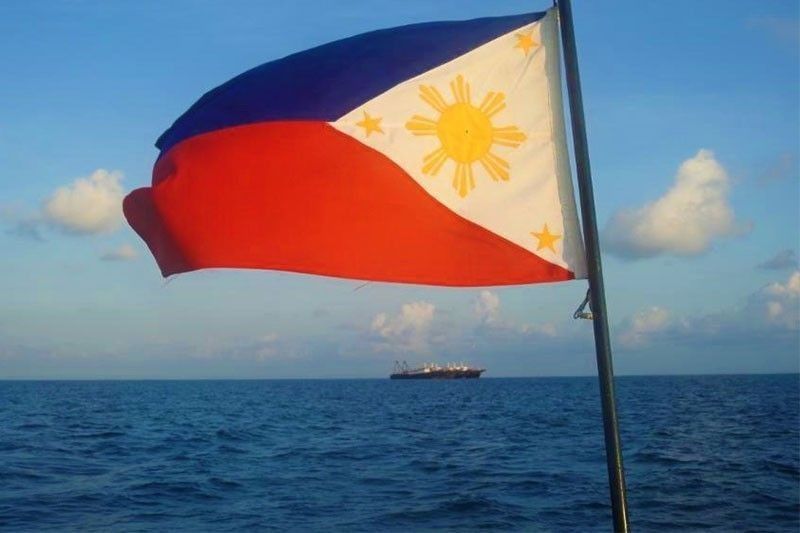Six years after the South China Sea ruling

Six years have passed since the Permanent Court of Arbitration (PCA) in The Hague issued its landmark ruling unanimously and firmly rejected China’s expansive maritime claims in the South China Sea as having no basis in international law.
The Philippines initiated the arbitration in 2013 under the 1982 United Nations Convention on the Law of the Sea (UNCLOS) dispute settlement procedures, questioning the legality of China’s claims and activities in the South China Sea.
The much-anticipated 2016 ruling addressed three main issues. First, the rule found that China has no legal basis for claiming historic rights to resources within the so-called "nine-dash line." Second, the court found that certain land formations modified by China through land reclamations and construction do not generate new maritime entitlements for China. Third, The Tribunal ruled that China "violated the Philippines' sovereign rights in its exclusive economic zone" by interfering with fishing and petroleum exploration, constructing artificial islands, and failing to prevent Chinese fishermen from fishing in the zone.
When the ruling came out, it was seen as a huge victory, not only for the Philippines but for the international community as well. The arbitral ruling not only affirmed the Philippines' territorial claims covered by its exclusive economic zone (EEZ) but also provided a legal framework for a rules-based international order.
At a regional level, the award impacted how nations position themselves on the issue of the South China Sea. During the 36th ASEAN summit in 2020, ASEAN leaders said: “We reaffirmed that the 1982 UNCLOS is the basis for determining maritime entitlements, sovereign rights, jurisdiction, and legitimate interests over maritime zones.” The statement reaffirmed that "UNCLOS sets out the legal framework within which all activities in the oceans and seas must be carried out.”
Back at home, however, the award did not get the welcome one would expect. Despite the public’s celebration of the ruling in 2016, then-President Rodrigo Duterte “set aside” the ruling and took a Beijing-friendly foreign policy posture instead. It was done, in part, in hopes that it would lead to more Chinese funding of his Build, Build, Build infrastructure program.
However, things did not pan out as the former president had hoped. While infrastructure investments fell short of expectations, China continued its activities in the West Philippine Sea with reports of Chinese vessels harassing Filipino ships and research vessels, the continued presence of Chinese ships in Philippine territory, and the expansion of its artificial land formations.
Fast forward to 2022, the Philippines has a new administration, and all eyes are on President Ferdinand “Bongbong” Marcos Jr. and his policy direction in handling the maritime dispute. Given his political alignment and early pronouncements, analysts believed the Marcos administration would continue elevating the bilateral relations of the Philippines with China.
In one of his recent statements, Marcos Jr. referred to China as the country’s strongest partner in its recovery from the COVID-19 pandemic. He also expressed his intent to participate in China’s Belt and Road Initiative (BRI) and foster deeper cooperation on various regional challenges.
At the same time, Marcos Jr. promised to assert the 2016 arbitral ruling and consistently talk with China with a "firm" voice. He also reassured the Filipino public that he would not allow a single millimeter of the country’s maritime coastal rights to be trampled upon by any state, including China.
Echoing this view, National Security Advisor Clarita Carlos hinted at a critical form of engagement with China, indicating a more comprehensive approach to national security.
These recent policy pronouncements mark a departure from the Beijing-friendly pivot made by his predecessor. The Marcos administration has made repeated commitments to pursue an independent foreign policy that will allow the Philippines to uphold its strategic interests and maintain its diplomatic relations without any pressure and interference from other states.
The Marcos administration is under much pressure to deliver on this front. During his campaign, surveys showed that most voters believed he was the best candidate to defend the Philippines against China. As the country’s first president to win a majority vote in the post-Marcos Sr. years, hopes are high that he will live up to their expectations and respond to their concerns.
Regarding the issue of the West Philippine Sea, the surveys commissioned by the Stratbase ADR Institute through the Social Weather Stations in October 2021 show that 82% of Filipinos want the new administration to assert its rights as stipulated in the Arbitral Award. The Marcos administration must stick to the President's promise to uphold the PCA ruling and protect our maritime coastal rights.
Furthermore, 85% agree that the Philippines should form alliances with other countries to defend its rights, while 80% believe the government needs to strengthen the capabilities of its Navy and Coast Guard.
To do this, the Marcos administration must leverage its existing strategic partnerships and build on alliances with like-minded states to defend its territorial integrity and contribute to the international effort to promote a Free and Open Indo-Pacific. The Philippines must continue to engage in multilateral and inclusive cooperation with the United States, Australia, Japan, European Union and the United Kingdom.
As the country’s first majority-elected chief executive in decades, President Marcos Jr. carries the burden of living up to the expectations of the 31 million Filipinos who voted for him. But more than that, as the democratically elected leader of a nation of over 109 million, he must uphold the entire country’s interests and defend our territorial and maritime rights.
Paco Aguiling Pangalangan is the executive director of think tank Stratbase ADR Institute.
- Latest




























